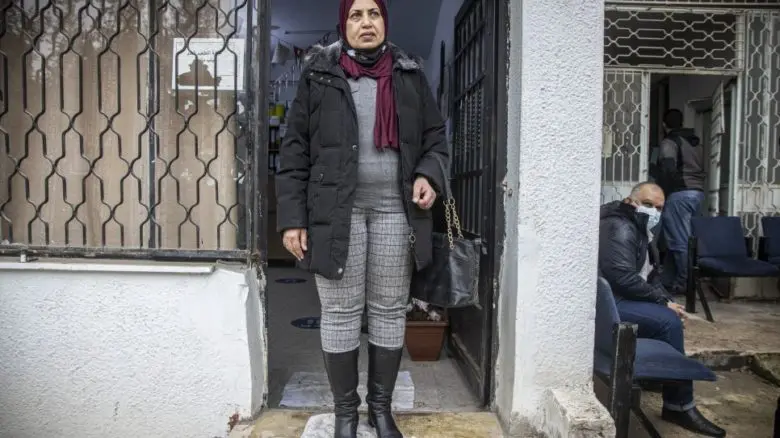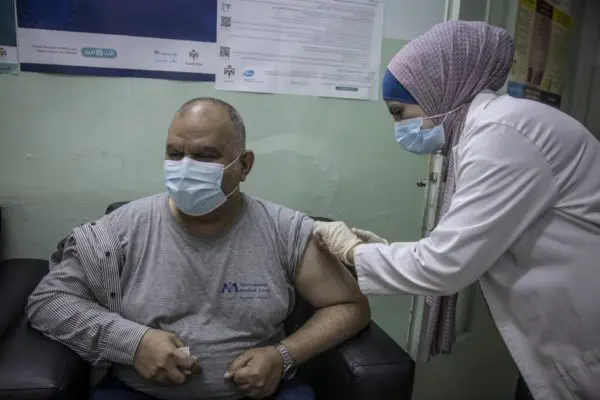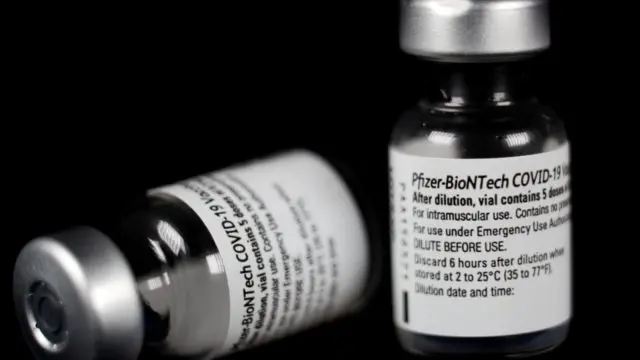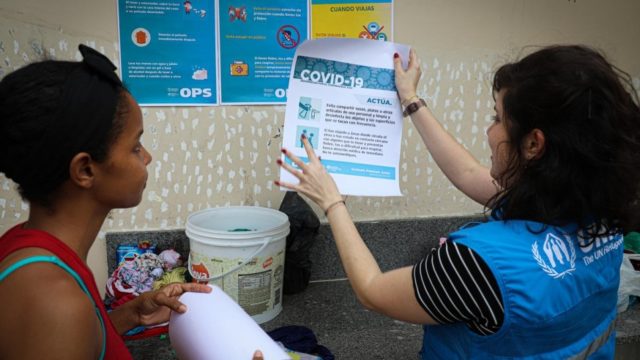
Iraqi refugee Raia Al Kabashi leaves a health center in Irbid, Jordan, moments after receiving the COVID-19 vaccine. © UNHCR/Jose Cendon
After receiving inoculation as part of Jordan’s national vaccination plan, Iraqi refugee Raia hopes life will soon return to normal and other refugees will follow her lead.
By Lilly Carlisle in Irbid, Jordan
“I hope life will be more relaxed now. When I go home, I can kiss my children without having to sanitize myself first,” Iraqi refugee Raia said on Thursday after receiving a COVID-19 jab in the northern Jordanian city of Irbid, becoming one of the first UNHCR-registered refugees in the world to be vaccinated against the virus.
Originally from Baghdad, Raia and her husband Ziad – a doctor by profession – fled the Iraq conflict to Jordan in 2006. They both received the Sinopharm vaccine developed in China after being prioritized due to Ziad’s chronic diseases, which placed him in the high-risk category.
As she came out of the health centre after receiving her shot, Raia wore a broad smile and gave a thumbs-up. “We just want life to be back to normal. The vaccine is the right way of doing this,” she said.
As a trained pharmacist, Raia knows the importance of vaccinations and enrolled herself and her family as soon as registration opened in Jordan. As part of the country’s national COVID-19 vaccination plan, which started this week, anyone living on Jordanian soil, including refugees and asylum seekers, is entitled to receive the vaccine free of charge.
UNHCR, the UN Refugee Agency, is continuously advocating at country, regional and global levels for refugees and other people we protect to be included in national strategies. As a priority, vaccines are being made available to the most vulnerable, such as older people, those with chronic diseases, or people who are immune-compromised, as well as healthcare workers and others with system-critical functions.
Only those refugees who are in one of the national priority categories will receive vaccinations initially. Others may follow as rollouts are scaled up.
See also: Q&A: ‘Including refugees in the vaccine rollout is key to ending the pandemic’
When Raia received the SMS informing her of the vaccination appointment, she took a screenshot and sent it to everyone she knows. Thanks to her medical background and her role as refugee community volunteer, she will play a key role in encouraging other refugees to become vaccinated.
“There is some hesitation among our community about the vaccine, but I want to take it to reassure everyone that it is safe,” she said.
Jordan – which is host to some 750,000 refugees registered with UNHCR – introduced some of the most stringent lockdown measures in the world during the early phase of the pandemic in an effort to contain the spread of the virus.
While the proportion of refugees that have tested positive for COVID-19 in the country has remained low at 1.6 per cent, compared with three per cent among the general Jordanian population, Raia has seen the devastating effects of the virus in her local community and says the vaccine is sorely needed to lessen the impact of the pandemic.
Originally published by UNHCR on 14 January 2021.





